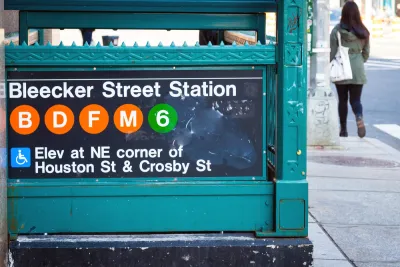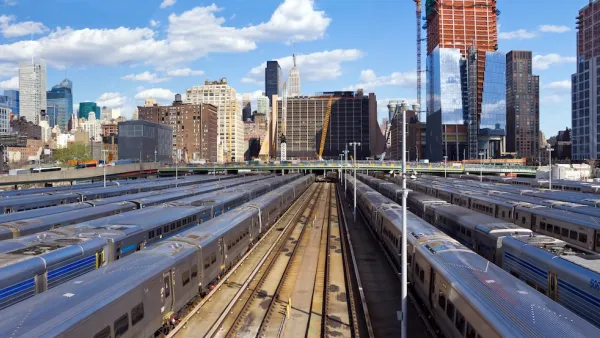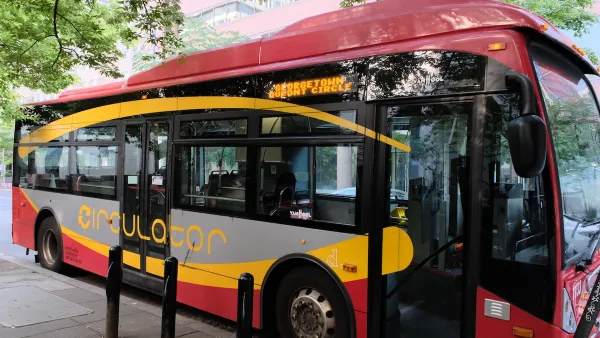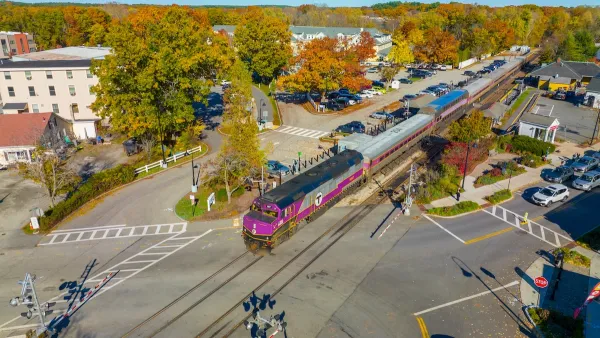Transit can advance social equity and provide access to opportunity—but only if agencies work for inclusive planning and resource allocation.

A new report from TransitCenter lays out guidelines for transit agencies seeking to better serve communities that have historically been cut out of planning and investment initiatives and that depend on public transportation. Angie Schmitt summarizes the report's six key recommendations for Streetsblog USA.
The broadest recommendation is to proactively address inequities across both system investment and agency leadership. "In many regions, suburban interests are overrepresented in transit agency leadership, skewing policy to favor well-off commuters from bedroom communities," Schmitt writes. "Decisions about major capital investment may also be dictated by property owners or other narrow constituencies whose interests don't align with providing good transit to people who need it."
Other recommendations include:
-
Progressive fares: To avoid disproportionately burdening the people who rely on transit the most, agencies should "fund transit budgets with progressive sources of revenue to the extent possible," Schmitt explains.
-
Decriminalize fare evasion: Transit agencies can follow the lead of Manhattan, D.C., and Portland, which have taken steps toward decriminalizing fare evasion. If fare payment is enforced, agencies should deploy agency staff rather than police in order to avoid potential escalation—and they should keep track of race and income of riders stopped or penalized.
-
Invest in affordable housing: TransitCenter recommends that agencies promote denser development and reduced parking requirements surrounding major transit stations. Because in metro areas like New York and California, transit-oriented development has been shown to fuel gentrification and displacement, the report also recommends promoting affordable housing.
FULL STORY: 6 Principles for a Transit System That Makes Your City More Fair and Just

National Parks Layoffs Will Cause Communities to Lose Billions
Thousands of essential park workers were laid off this week, just before the busy spring break season.

Retro-silient?: America’s First “Eco-burb,” The Woodlands Turns 50
A master-planned community north of Houston offers lessons on green infrastructure and resilient design, but falls short of its founder’s lofty affordability and walkability goals.

Delivering for America Plan Will Downgrade Mail Service in at Least 49.5 Percent of Zip Codes
Republican and Democrat lawmakers criticize the plan for its disproportionate negative impact on rural communities.

Test News Post 1
This is a summary

Test News Headline 46
Test for the image on the front page.

Balancing Bombs and Butterflies: How the National Guard Protects a Rare Species
The National Guard at Fort Indiantown Gap uses GIS technology and land management strategies to balance military training with conservation efforts, ensuring the survival of the rare eastern regal fritillary butterfly.
Urban Design for Planners 1: Software Tools
This six-course series explores essential urban design concepts using open source software and equips planners with the tools they need to participate fully in the urban design process.
Planning for Universal Design
Learn the tools for implementing Universal Design in planning regulations.
EMC Planning Group, Inc.
Planetizen
Planetizen
Mpact (formerly Rail~Volution)
Great Falls Development Authority, Inc.
HUDs Office of Policy Development and Research
NYU Wagner Graduate School of Public Service





























